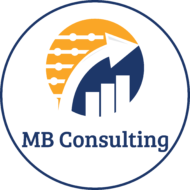At the start of 2021, after spending six months at home with my kids during their online school days in the thick of COVID, I jumped back into full-time consulting. What began as a short-term assignment to help clean up some fresh-start accounting and an ERP implementation that went sideways quickly evolved into a series of long-term, strategic engagements across healthcare, education, distribution, and tech.
Most of my work has been with private equity-backed companies — and here’s what I’ve learned from the trenches.
Most Accounting Teams Are Understaffed
Small and midsize companies are operating leaner than ever. Controllers are juggling AP, audit prep, and reporting — often alone. CFOs are also doubling as IT or HR leads. The result? Gaps, particularly in internal controls, documentation, and cash management. When that happens, critical work slips through the cracks.
Patchwork Processes Lead to Missed Money
Without enough staff, shortcuts become standard. Month-end closes stretch into the next month. Audit prep is rushed. And documentation? Frequently nonexistent.
My first job on most engagements is cleanup — followed by process redesign. I help build or fix reconciliation routines, AP approval flows, and lender reporting. In some cases, I backfill the team’s day-to-day so they can finally work on long-overdue process improvement projects themselves.
Engagements Start Short — Then Grow
Most of my roles were originally scoped for 1 to 3 months. But once I delivered results, showed value, and became familiar with their systems and processes, the extensions came naturally. The average engagement has lasted 10 months or longer.
That said, I’ve done shorter “triage” work too — helping clients survive audits, finalize year-end financials, or cover key vacancies. In those cases, I’ve stepped in quickly, kept things running, and trained the incoming hire when needed.
Pro tip: I start a running list of improvement ideas on day one. If I get a break in deliverables, I tackle something off that list and show the client extra value — it often opens the door to longer-term work.
How I Find Work: Relationships First, Firms Second
LinkedIn has been a great platform to stay visible and connect with former colleagues — and a few leads have come from that. But the majority of my projects have come through local consulting and staffing firms that place independent professionals with clients in need.
These firms already have relationships with decision-makers and can help you get in fast. If you’re not registered with a few, you may be missing out on some of the best leads.
I haven’t spent much time on platforms like Upwork or Fiverr, as they tend to attract lower-budget work. That said, I’ve used them to hire freelancers for my businesses and had good experiences.
Mix in Smaller Clients — But Be Strategic
Part-time or project-based clients are a great way to bridge income gaps. But more importantly, they give you a foot in the door. Several of my long-term contracts started as fractional roles. Once the client saw what I could do, expanding my role was an easy decision.
Think Like a Business Owner, Not a Freelancer
There’s risk in consulting — irregular income, no benefits, and that 15%+ self-employment tax. But the upside is significant if you structure your business the right way.
Many consultants I meet are overpaying taxes simply because they’ve stayed sole proprietors or haven’t taken full advantage of retirement plans and business deductions. By setting up the right entity, contributing to retirement strategically, and using legitimate tax-saving strategies, you can dramatically improve your take-home income.
I’ll be sharing more about specific deductions and strategies I use in future posts — including how I set aside money for savings, travel, and long-term goals while reducing my tax burden.
Final Thoughts
Consulting isn’t always easy. It demands adaptability, resilience, and a willingness to jump into the unknown. But if you know your value, structure your business smartly, and keep building connections — it’s incredibly rewarding.
I wouldn’t trade these last four years for anything.
💡 Want to Talk Consulting?
If you’re an independent consultant (or thinking about becoming one), I’m always open to chat. Use the contact page on this site or reach out through LinkedIn. You can also check out my book on how to launch a consulting business here:
👉 mabbydigital.com/mb-consulting/book
If you’re a business in need of interim finance leadership, audit support, special projects, or ERP implementation help — let’s talk.
